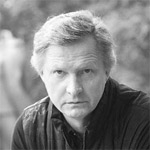Author: Interview by Sevda Babaeva, Baku, exclusive to VK

– Gennady Arkadyevich, do you think it is possible to change Russian-Armenian relations in light of the fact that Yerevan is increasingly cooperating with the U.S.?
– As a historian I am sure that this will not happen. There are issues that are solved independently of cooperation with different countries of varying intensities.
Read also
– Do new gas projects for transportation of oil and gas to Europe bypassing Russia irritate Moscow?
– I do not think so. Russia has had a lot of time to think about ways to compensate for possible losses.
– In your opinion, in a strategic context, is Azerbaijan closer to Russia or to the West?
– I would not like to measure the degree of closeness. Politics is a very complex and delicate matter, especially when we are talking about turning points. I think that the government of Azerbaijan is committed to a reasonable balance in the strategic partnership with Russia and the United States and retains a non-aligned approach to foreign policy. Yes, Azerbaijan is an important representative of the interests of the West in the region, but there is an understanding that Russia is not going to give up its position and supports a single, well-balanced approach to key issues in the region. Now we can hear a lot of different estimates and predictions related to this point. Some experts predict almost a freeze in Russian-Azerbaijani relations. As a historian I want to warn such experts that no one can squander the common history of our people without consequences.
– The special training of the School of Journalistic Skill of RIA Novosti has recently been held in Baku. What are your impressions of these training sessions?
– I had to perform for the first time for an audience of youngpromising journalists of Azerbaijan. Of course, there was a certain anxiety about the reaction to those or other methods of my multimedia workshop “How to create an information image of the country?” After all, they are based on an inter-disciplinary approach to teaching a correct “reading” of ethnic stereotypes, recognizing the obvious and covert visual impact on people. I admit I did not expect such interested attention and a friendly atmosphere, allowing me to move quickly from one to another, more complex, level of studying contemporary visual practices. Unfortunately, time has flown very fast, but I look forward to further cooperation with my young students.
Vestnik Kavkaza



















































